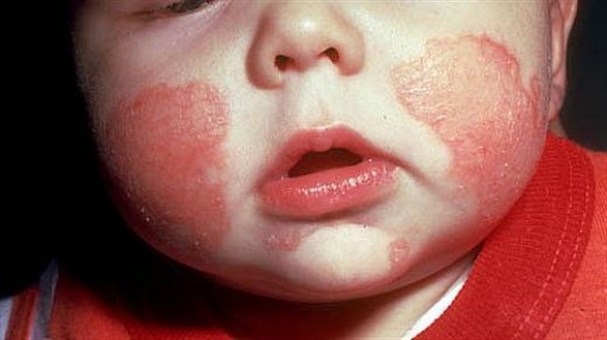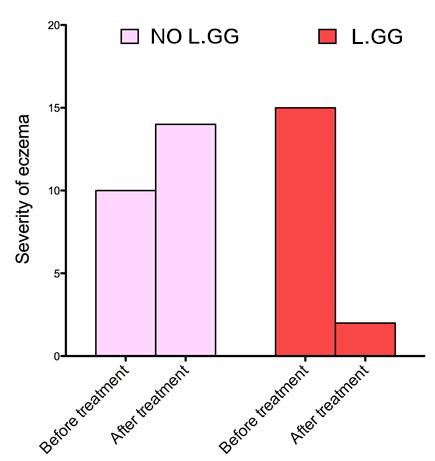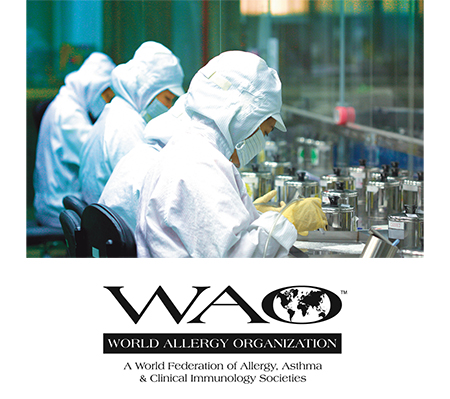|

In 2000, a team of doctors first documented that giving GG probiotic regularly for 2 months to young infants who had atopic eczema could halve the severity of the condition.  Atopic eczema severity score (SCORAD) before and after consuming milk containing and not containing Lactobacillus GG. (The higher the score the more severe the eczema). [Isolauri et al. 2000] This landmark study provided the first clinical evidence that a specific probiotic strain, GG probiotic, could modify the human immune system away from allergic inflammation, not only in the gastro-intestinal tract but also in other parts of the human body, such as the skin. Following this study, other researchers further confirmed this beneficial effect in various clinical trials. Improvement was most noticeable when atopic eczema was caused by food allergy, such as cow milk allergy. In 2015 the World Allergy Organization formed a panel of allergy experts to evaluate all the evidence available in scientific and medical research on the use of probiotics in allergic disease prevention. The panel consisted of 25 world allergy experts from 22 allergy centres and universities, including an expert from Department of Primary Child Care, Children s Hospital, Chongqing Medical University, China. They examined the most significant clinical trials which used probiotics in preventing atopic eczema. Out of the 30 clinical trials analysed, 13 were studies using LACTOGG®’ s Lactobacillus rhamnosus GG (ATCC 53103) strain.  The expert panel s conclusion is that "There is a likely net benefit from using probiotics resulting primarily from prevention of eczema." The World Allergy Organization’s recommends the following: a) using probiotics in pregnant women at high risk for having an allergic child; b) using probiotics in women who breastfeed infants at high risk of developing allergy; c) using probiotics in infants at high risk of developing allergy. If your baby has a high chance of developing allergy, reach out for LACTOGG®’ s GG probiotic, the probiotic strain which has been studied, evaluated and recommended by experts. References: Foolad N et al. Effect of nutrient supplementation on atopic dermatitis in children. A systematic review of probiotics, prebiotics, formula and fatty acids. Arch Dermatol 2013:149:350-355 Isolauri E et al. Probiotics in the management of atopic eczema. Clin Exp Allergy 2000;30:1604-10 Kirjavainen PV et al. Probiotic bacteria in the management of atopic disease: Underscoring the importance of viability. J Pediatr Gastroenterol Nutr 2003;36:223-227 Viljanen M et al. Probiotics in the treatment of atopic eczema/dermatitis syndrome in infants: a double-blind placebo-controlled trial. Allergy 2005; 60: 494-500 Viljanen M et al. Probiotic effects on faecal inflammatory markers and faecal IgA in food allergic atopic eczema/dermatitis syndrome infants. Pediatr Allergy Immunol 2005;16:65-71 Fiocchi A et al. World Allergy Organization-McMaster University Guidelines for Allergic Disease Prevention (GLAD-P): Probiotics. World Allergy Organ J 2015;8:4DOI 10.1186/s40413-015-0055-2 |




